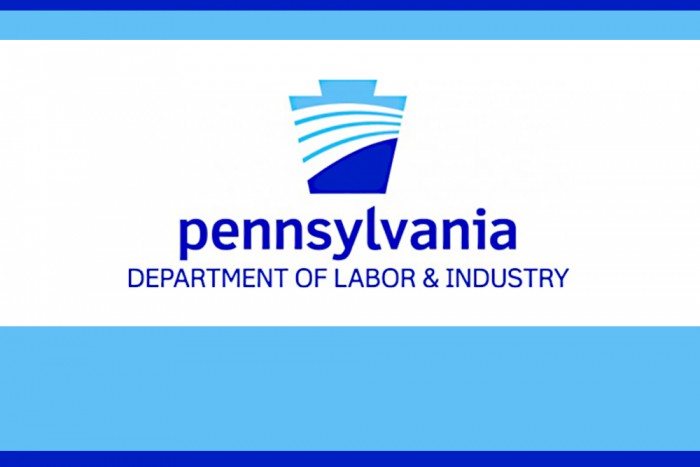The Centers for Medicare and Medicaid Services (CMS) recently released an updated COVID-19 Accelerated and Advance Payment (CAAP) Repayment & Recovery Frequently Asked Questions (FAQ) document. Members are encouraged to review this document to learn more about how recoupment works and how it affects Medicare claims payment amounts.
ODP Rates for CPS and Transportation Trip Services
A message from the Office of Developmental Programs (ODP):
On February 3, 2021, the Department announced temporarily enhanced rates for Community Participation Supports and Transportation Trip services applied for services rendered January 1 through June 30, 2021. The end dates for the temporary rates were programmed in the Home and Community Services Information System (HCSIS) as per the timeframe published in the PA Bulletin; therefore, rates effective July 1, 2021 reverted to the previously published rates for these services.
In May 2021, the Center for Medicare and Medicaid Services (CMS) published SMD# 21-003 RE: Implementation of American Rescue Plan Act of 2021 Section 9817: Additional Support for Medicaid Home and Community-Based Services (HCBS) during the COVID-19 Emergency. The requirements outlined in this SMD include the use of the federal funds attributable to the increased federal medical assistance percentage rate for certain Medicaid expenditures for HCBS to supplement existing state funds expended for Medicaid HCBS in effect as of April 1, 2021. The Department is meeting with CMS to discuss the impact this guidance has, if any, on the temporary enhanced rates.
Information will be shared with providers as soon as possible.
Thank you.
Philly and SEPTA Issue Tech Challenge to Help People With Disabilities Navigate Transit
ODP Quality Assessment & Improvement (QA&I) Interim Year 2 Review Process
ODP Announcement 21-052 communicates the planned commencement of an Office of Developmental Programs (ODP) Quality Assessment and Improvement (QA&I) interim review process for Fiscal Year (FY) 2021–2022 as a result of the impact of the COVID-19 pandemic. ODP received approval from the Centers for Medicare and Medicaid Services (CMS) through an Appendix K amendment to conduct a QA&I “interim” review for FY 2021–2022 and to delay the implementation of Cycle 2, Year 1 activities until FY 2022–2023. The Quality Assessment and Improvement (QAI) Interim Year 2 Review Process Document provides detailed guidance for the ODP’s Quality Assessment and Improvement (QA&I) interim review process for Fiscal Year (FY) 2021-2022. The following is a summary of the approved changes for the interim review period.
Timeline
- The QA&I activities will begin in July 2021 and end in March 2022.
- A detailed timeline will be included in Interim Year 2 process document.
Sampling
- ODP will pull a core sample of waiver individuals receiving services and supports using the proportionate random representative sampling methodology as described in the Intellectual Disability/Autism (ID/A) waivers and Adult Autism Waivers (AAW).
- ODP will also pull a separate Level of Care (LOC) sample to identify the individuals who have received an initial LOC assessment. This review of LOC determinations will focus on the timelines and accuracy of initial LOC determinations.
- Administrative Entities (AEs) will not pull their own sample and will receive their sample of providers and individual records from ODP.
- Samples will tentatively be provided in July 2021.
Tools
- Questions remain aligned between the ID/A and AAW waivers, so there will be one tool for Supports Coordination Organizations (SCOs) and one tool for Providers. For the ID/A waivers, there will be a separate tool for AEs.
- Questions in Interim Year 2 will continue to focus on CMS Performance Measures, Information Sharing Advisory Committee (ISAC) focus areas, health and safety, and other areas that ODP identifies as a priority.
- The timeframe for reviewing each question is 12 months from the date of the desk review unless otherwise specified. The same review period must be used when completing the desk review and the onsite review.
Individual Interviews
- All individual interviews will be completed by Independent Monitoring for Quality (IM4Q) local programs, on behalf of ODP. AEs will not be conducting individual interviews during Interim Year 2.
- Questions related to the COVID-19 pandemic will be included.
Self-Assessments
- Entities not included in the Interim Year 2 sample will complete a modified self-assessment that will focus on CMS Performance Measures where statewide performance fell below the 86% threshold in Cycle 1, Year 3 (FY 2019–20).
- Modified self-assessments will begin in September 2021.
- AEs, SCOs, and Providers that will receive an onsite review will not be required to complete and submit a self-assessment.
- Providers who are only approved to render services in the AAW will not be required to complete a self-assessment whether they receive an onsite review or not.
Desk and Onsite Reviews
- All entities included in the Interim Year 2 sample will receive a desk and onsite review.
- Onsite reviews are subject to change to virtual reviews. ODP will make an informed decision on changing the method of onsite reviews to virtual reviews in alignment with applicable CDC COVID-19 guidance.
- All required documentation will be submitted to the QA&I team prior to the desk review.
Entrance and Exit Conferences
- Entrance and Exit Conferences with the QA&I team and entity leadership will be conducted during the onsite review.
- In the event that an onsite review does not occur, a virtual conference will be held at the conclusion of the Desk Review.
QA&I Spreadsheet and Corrective Action Plan (CAP)
- These documents will continue to be utilized.
Comprehensive Report
- Reviewed entities will not receive a Comprehensive Report. A summary of results from the Interim Year 2 review will be included in the Annual Statewide QA&I Report.
- A copy of the approved and validated QA&I spreadsheet along with the CAP (if applicable) will be sent electronically to the entity reviewed. Receipt of this information indicates that the Interim Year 2 review for the entity is complete.
Please note that the activities detailed in this announcement are subject to change. Once the updated resources and materials for the Interim Year 2 review are finalized, an email will be sent to all primary and secondary QA&I contacts noting their availability on the MyODP Training & Resource Center using the following path: Resources > ODP Information > QA&I Process.
ODP will be offering Interim Year 2 training opportunities in July 2021. Details regarding these trainings will be forthcoming.
Please send questions via email directly to the QA&I Process Mailbox.
HEAL PA Trauma Initiative Info Release
As part of Governor Tom Wolf’s Trauma-Informed PA Plan, in order to guide the Commonwealth and service providers statewide on what it means to be trauma-informed and healing-centered in PA, the Office of Advocacy and Reform (OAR) and the PA Attorney General’s Office have continued its work on trauma initiatives in launching “HEAL PA.” The Office of Advocacy and Reform recently released a new one page flyer for HEAL PA that gives an overview of the mission and vision for Pennsylvania in its efforts to become a trauma-informed state. If you need any additional information or have questions on getting more involved in the HEAL PA initiative, please contact RCPA Policy Director Jim Sharp.
Unemployment Compensation (UC) Fraudulent Claims Update & Guidance
Many employers are reporting receiving Unemployment Compensation (UC) claim notices and other documents about claims that they believe to be fraudulent. Many RCPA members are reporting that an employee still works there and did not file a claim, or that the alleged claimant never worked there. It is important that employers respond to these notices promptly.
Initially, some believed that it was a case that the new system was compromised, but we have learned that this was not the case. Identifying data was stolen in various data breeches we hear about on the news and then sold to criminals (often organized), who use it to file fraudulent unemployment claims.
The new system was presumably targeted simply because it is new, and the criminals want to see if they can get away with the fraud, although we were hearing about increased levels of fraudulent claims in regular UC before the launch. The department tells us that the new system has the regular fraud prevention measures that were present in the old system (so most of these are not being paid), but they are also going to implement identity verification (through ID.me, which they used in the PUA program). No date has been announced on that yet.
Last year, massive numbers of fraudulent claims were filed in the Pandemic Unemployment Assistance (PUA) program in Pennsylvania and across the nation. International and domestic criminals (often organized criminal groups) obtained personal information that was stolen through a data breach (from another source — the data was NOT stolen from L&I). These criminals then used this personal information to file fraudulent unemployment claims.
In addition to attempts at defrauding PUA, there has been an uptick in fraud against regular UC. Although this was happening prior to the rollout of the new system, these attempts seem to have accelerated somewhat under the new system. At a June 23 hearing of the Labor and Industry Committee, the Department of Labor and Industry testified that, while the traditional fraud crosschecks were incorporated in the new system, the identity verification procedures incorporated in PUA have not yet been introduced for UC. They did not provide a specific date, but they hope to implement ID.me verification for UC soon.
We have been offered guidance from the legislative panel who heard the aforementioned testimony from the Department of Labor and Industry. What should you do if an employer contacts your office to report possible Unemployment Compensation (UC) Fraud?
- Respond promptly to any employer notices about a fraudulent claim, clearly stating the situation (current employee did not file a claim, claimant never worked there, etc.) and that the employer believes the claim to be fraudulent. There are directions in the notice about how to respond. Although this can be done by mail, the fastest way to do this is in the employer’s portal in the new UC system. One of the major reasons for the implementation of the new system is improved business processes, and consequently employers can manage all their UC dealings through the new system. For those employers who need to learn the system, there are resources online that may be helpful:
- If a current employee seems to be the victim of identity theft, the employer or employee should fill out an online fraud report through UC’s website. There are several types of fraud, so they should take care to report identity theft fraud, and they should include as much information as possible. The link to UC’s fraud information page is here.
- Finally, since the employee is likely the victim of identity theft, the employer may want to share some additional information and identity theft resources with the employee. If the legislator’s office does not stock caucus identity theft publications, the FTC’s identity theft website contains information about what steps the victim should take to recover and protect their identity.
RCPA continues to monitor these activities through our government affairs director and the RCPA Human Resources Committee. Please contact your RCPA Policy Director if you have any further questions.
Opinion: When It Comes to People Like My Daughter, One Size Does Not Fit All
The 2021 Relias-ANCOR DSP Survey Report: Key Findings on DSP Satisfaction, Engagement, and Retention
RCPA Responds to PA Department of Human Services Spending Plan for the American Rescue Plan Act of 2021
RCPA submitted comments regarding the PA Department of Human Services spending plan for funding available to home and community-based services (HCBS) through the American Rescue Plan Act of 2021, Section 9817 that was due today, July 6, 2021. The document details several overall, cross-system comments for review in addition to specific comments from each RCPA Division; Adult Mental Health, Children’s Services, Intellectual and Developmental Disabilities (including Supports Coordination), Drug and Alcohol, Physical Disabilities and Aging (including Brain Injury services) and Pediatric Rehabilitation.
RCPA appreciates the opportunity to provide this feedback on the DHS ARP plan. We look forward to further discussion and stand ready to assist DHS as a key community stakeholder.


















